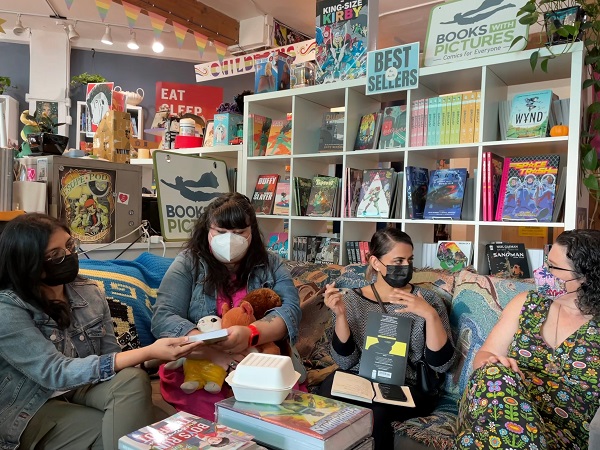Seminars and Meetings - CAP Fellowship

Seminars, Meetings, & Field Trips
CAP Theory + Therapy
Director: Paria Zarrinnegar, MD
This seminar focuses on the core features of successful psychotherapeutic treatments of any modality, including discussion of creating and maintaining a therapeutic space where individuals, regardless of age or purpose for being in therapy, feel safe. Relevant literature that helps elucidate principles of psychotherapy and which helps child and adolescent psychiatrists consider novel ways of addressing clinical dilemmas are reviewed. Sessions include reviewing readings, formal presentations, and case presentations.
Specific instruction regarding several types of psychotherapy is also provided. This includes: Acceptance and Commitment Therapy (ACT), Interpersonal Psychotherapy for treatment of Adolescents with Depression (IPT-A), Dialectal Behavioral Therapy (DBT), Mentalization-based Treatment (MBT), Psychodynamic Psychotherapy, Play Therapy, Cognitive Behavioral Therapy (CBT), Parent Child Interactive Therapy (PCIT), and the Collaborative Problem Solving (CPS) interventions. By the time they graduate, all fellows earn a certificate of completion in Think:Kids Collaborative Problem Solving Tier I Training. Sessions include reviewing readings along with case presentations—which again, with patient/parent consent, often include video-recorded material.
Read Dr. Paria Zarrinnegar's perspective on Child & Adolescent Anxiety Psychodynamic Psychotherapy: A Treatment Manual by Sabina E Preter, Theodore Shaprio, and Barbar Milrod (Eds.)
CAP Continuous Case Conference
Director: Ajit Jetmalani, MD
Led by CAP Division Chief, Ajit Jetmalani, MD in CAP CCC fellows present relevant biopsychosocial data and pose particular questions or present clinical challenges to the group for consideration. With a patient/family's permission, presenters often utilize video recorded material. Cases are presented over three weeks, with the first week intended to review history and hone questions, the second and third to explore the case and specific interventions in more depth.
CAP Journal Club
Director: Keith Cheng, MD
Led by Keith Cheng, MD who along with Kathleen Myers, MD co-edited the 2nd edition of the textbook, Child & Adolescent Psychiatry: The Essentials, journal club is held once-a-month. Fellows take turns leading discussions of relevant articles, examining research methodology, statistical analysis, and clinical heuristics.
Phenomenology & Evidence-based Treatment (PEBT) Seminar
Director: Craigan Usher, MD
In this seminar, faculty members and fellows explore methods of evaluation, diagnostic criteria, differential diagnosis, and medical and non-medical treatment of mental health disruptions impacting children, teens, and families. The etiology, assessment and means of addressing individual disorders, such as Attention-Deficit/Hyperactivity Disorder, Schizophrenia Spectrum Disorders, or Anxiety Disorders are explored over several weeks. In PEBT Seminar, fellows also consider means of promoting resilience in the face of loss and adverse childhood events. Throughout the year (in non-COVID times) we take field-trips to centers that help support young people and families, including the Youth Era Clackamas Drop and the Dougy Center.